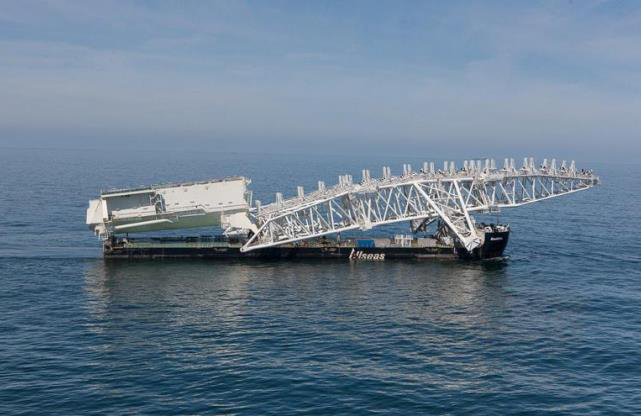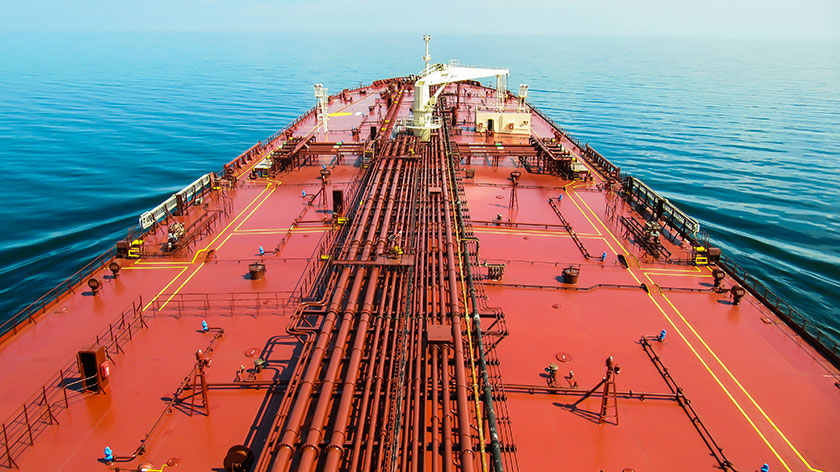Twój koszyk jest obecnie pusty!
Sijbren de Jong: New pipelines from Russia are all about politics
– The point is that if both Nord Stream and Turkish Stream are built, this will result in significant overcapacity. So the economic feasibility of both pipelines is not great. One has to also keep in mind that the current Nord Stream pipeline is not running at full capacity owing to a dispute over EU…

– The point is that if both Nord Stream and Turkish Stream are built, this will result in significant overcapacity. So the economic feasibility of both pipelines is not great. One has to also keep in mind that the current Nord Stream pipeline is not running at full capacity owing to a dispute over EU regulation. In other words, building both, you end up with way too much. Something has got to give – writes Dr. Sijbren de Jong, Strategic Analyst at The Hague Centre for Strategic Studies.
Turkish Stream is the politically most difficult one of the two. No reports have yet emerged on whether Turkish state-owned company BOTAS has received a larger discount from Gazprom – something that was standing in the way of Turkish Stream. The bigger problem for Turkish Stream isn’t so much building a pipeline to Turkey. It is getting the gas from the Turkish-Greek border onwards to other parts of Europe. Any pipeline that will be built will have to comply with the EU’s rules on third party access. The case for public and private financing of pipelines in Southeastern Europe isn’t exactly great at the moment. That means that if Gazprom funds the pipeline infrastructure, it will be paying for a pipeline that it afterwards has to share. I cannot see this happening.
It seems to me that both the Nord stream extension and Turkish Stream feed into the Kremlin’s strategic narrative of telling the EU – and its individual member states in particular – that holding on to Ukraine in gas transit is a dead end. It tells countries in central and eastern Europe that, that route is going be cut out and that they had better secure alternatives, i.e. tap into Turkish Stream. Some countries are eager to follow this narrative such as Greece, Austria, Slovakia. At the same time the Nord Stream extension can exert pressure on Turkey by making it seem that Gazprom is also seeking alternatives. And knowing that Turkey can also do the math of the available capacity, it could exert pressure on Botas to accept a lower discount.
In short, there are a lot of politics behind all this. I would not be surprised if the Turkish Stream pipeline ends up just being one line that goes to Turkey. That way Gazprom can reroute the gas currently supplied via the Transbalkan pipeline through Turkish Stream, and effectively rule out Ukrainian transit for gas shipped to Turkey. Moreover for the suggested pipelines to bring gas from the Turkish-Greek border to Austria, the parties involved will have a hard time convincing the European Commission that this is not just a rerouting of the transit route for Gazprom, but that it actually enhances European energy security.
Cutting Ukrainian transit out of the gas transit to Europe is also very difficult. First, Gazprom will have to renegotiate all the entry points in existing contracts with eastern European countries. Second, this comes at a time that the European Commission is watching closely also. The dominant view in Brussels is that Ukraine should not be cut off.
Russia isn’t exactly spending a lot of money on megaprojects. The money for South Stream that was already invested largely feeds into the first line for Turkish Stream and the Nord Stream deal is still only a memorandum. Not an actual business deal. So, this again gives me the idea that all this is largely pushed by politics.
More about the Author





Leave a Reply